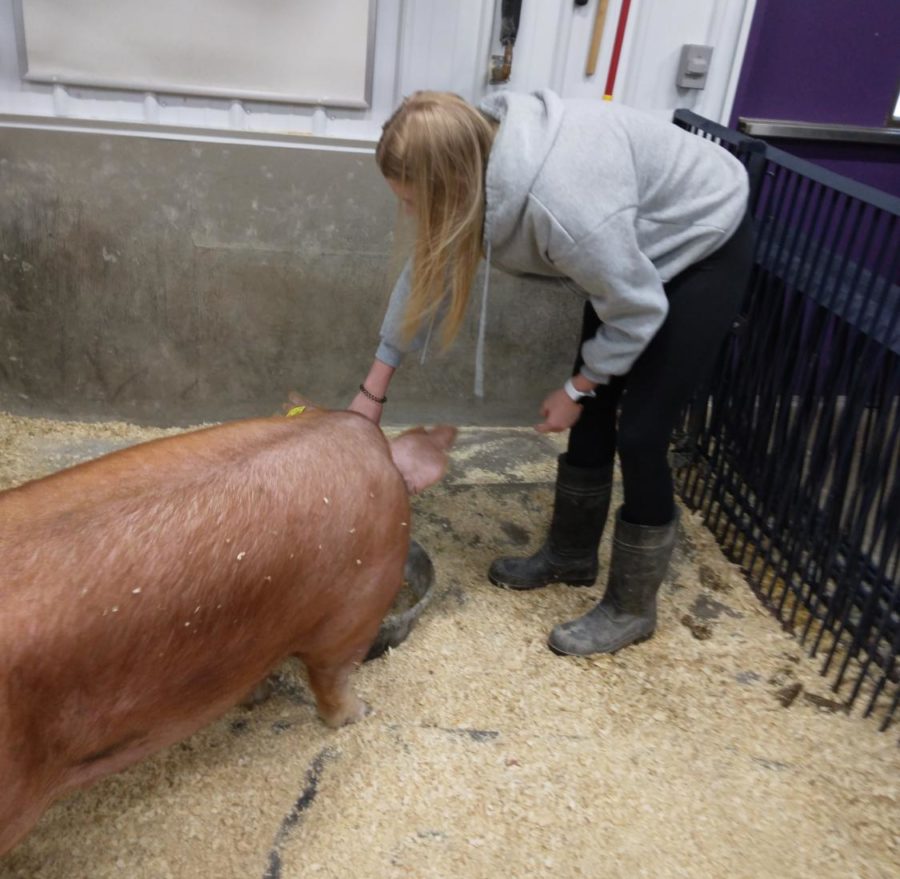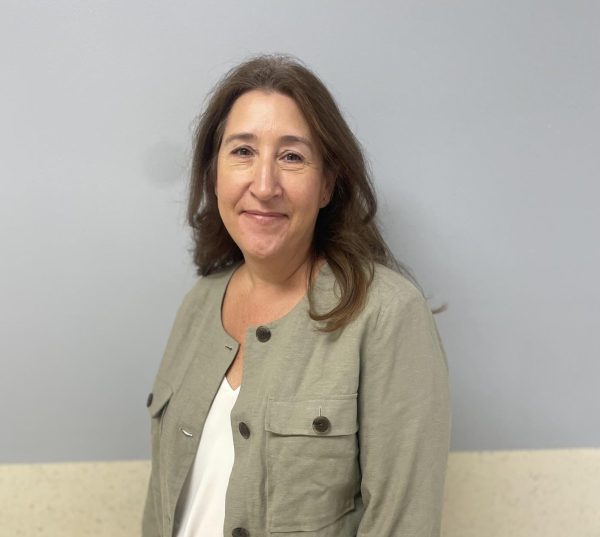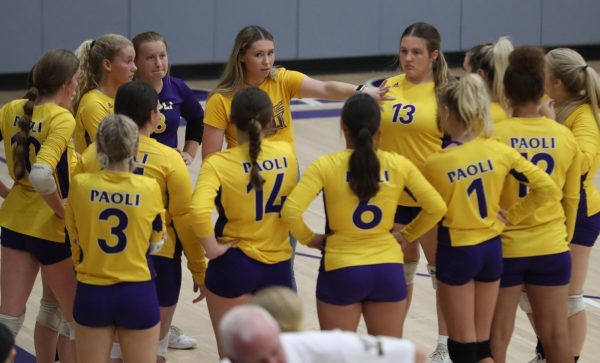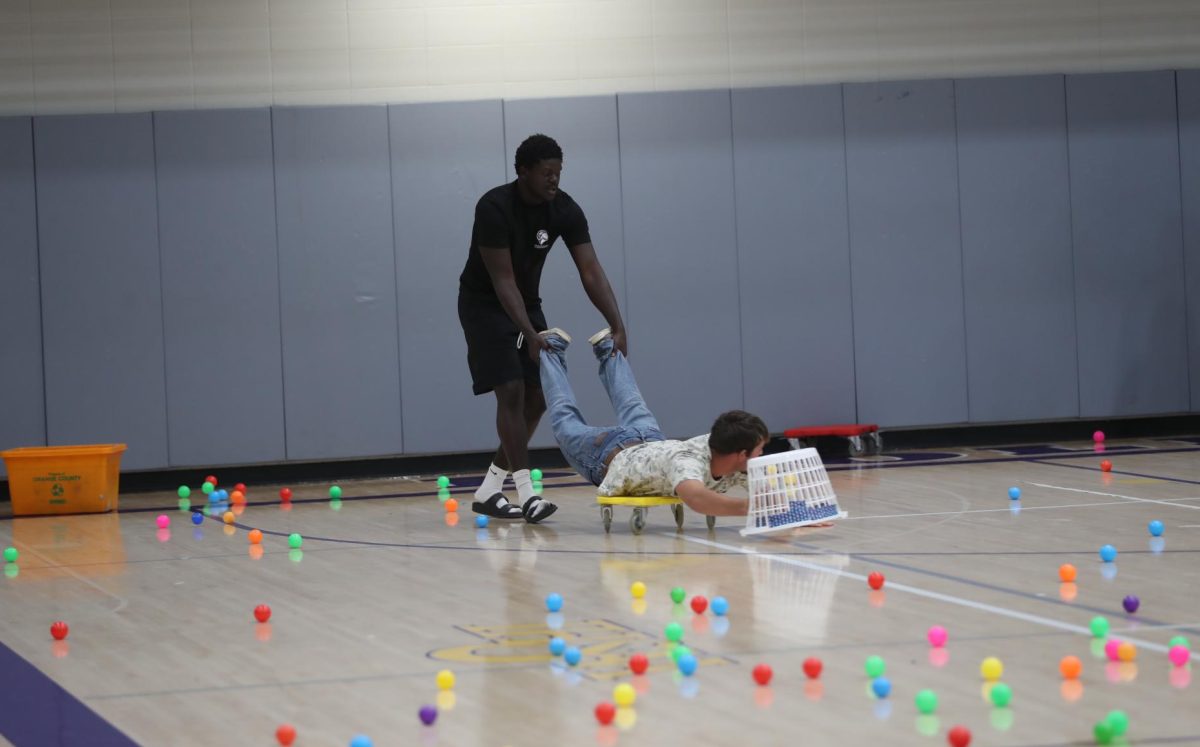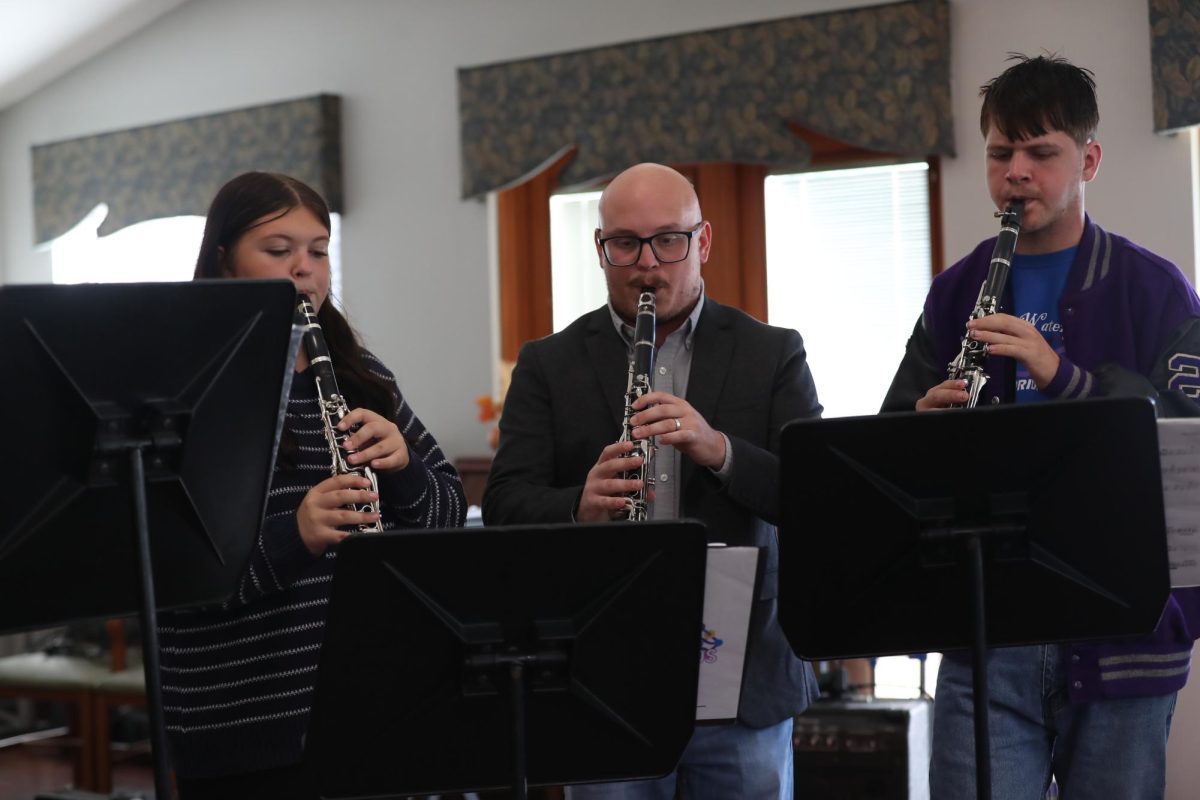New Generation of Pigs Coming to Ag Pavillion
Junior Abby Tapp feeds one of the pigs breakfast during her class.
September 23, 2022
Within the first two weeks of school, the Agriculture department began gearing up for another year with the pigs. Currently, the Dr. Bill McDonald Animal Science Pavilion (or the Ag barn) is home to six pigs, all soon-to-be moms. “I’m very excited about the kids and the pigs in the program this year. They are some of the highest quality pigs that we’ve had,” said Animal Science Teacher Cory Scott. Breeding, farrowing (or birthing) and raising the piglets to become successful is what is up next on the list for students this year. Throughout the process, students will learn about the reproductive system as well as proper care procedures for pigs.
“The program benefits me by helping me understand pigs, and teaching me how to work with them better,” said sophomore Chloe Smith. Smith is one of five students who own pigs in the barn, along with sophomore Keeley Scott, eighth grader Graydan Padgett, and seventh graders Lucas Carmickle and Kutter Springer. The gilts (female pigs under one year old) have successfully settled in and have all been artificially inseminated. Artificial insemination is where the female receives the male’s DNA without the male being present. This helps evade safety issues along with the strong odors of the boars. The boars were chosen from the swine farms Southern Gold Sires and Shaffer’s Goldrush. Students judged the gilts, looked for faults and then searched for boars that could potentially resolve these issues for the future generations.
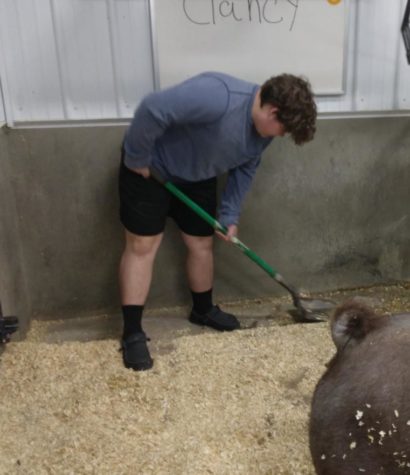
After the boars were chosen and the owners placed their orders, students learned how to artificially inseminate the gilts. Now that they are all bred, the Ag department is preparing for the incoming babies. Students are now studying diseases that pose a threat to the piglets and the vaccines that can prevent them. Veterinary science students have been administering the pre-breed vaccinations. The next round of shots that will be given by the students are the pre-farrow vaccines. The piglets are expected around late December to early January and students will either observe the births in-person or via the barn’s web-cams. Over the few months post-farrow, the piglets will need their vaccines as well as castration, tail docking and teeth clipping. Vaccinations helps keep protect the pigs’ health. Castration is done to help keep the students safe, keep the meat untainted and allows them to be shown as show pigs when they are old enough. Tail docking is another process done for the benefit of show pigs. Teeth clipping must be done for the piglets’ own safety, and for the safety of the other piglets in the same pen as them. In March, the piglets will be sold at the 4-H auction. These piglets will then be trained for fair. At the end of the Orange County 4-H Fair, the gilts that the students had raised will likely come back to the school to start the process over. “I learn a lot from the program every day, and it helps me be more responsible overall,” said sophomore Keeley Scott.

